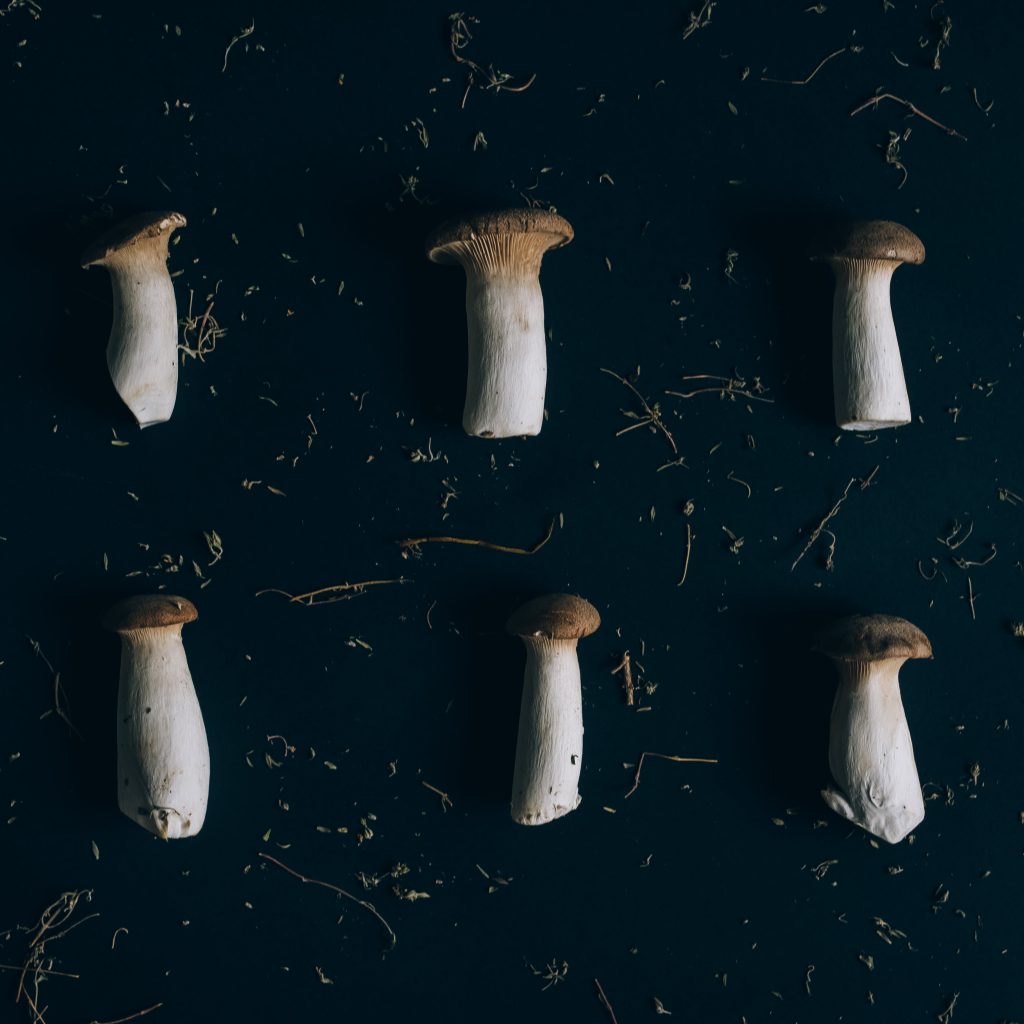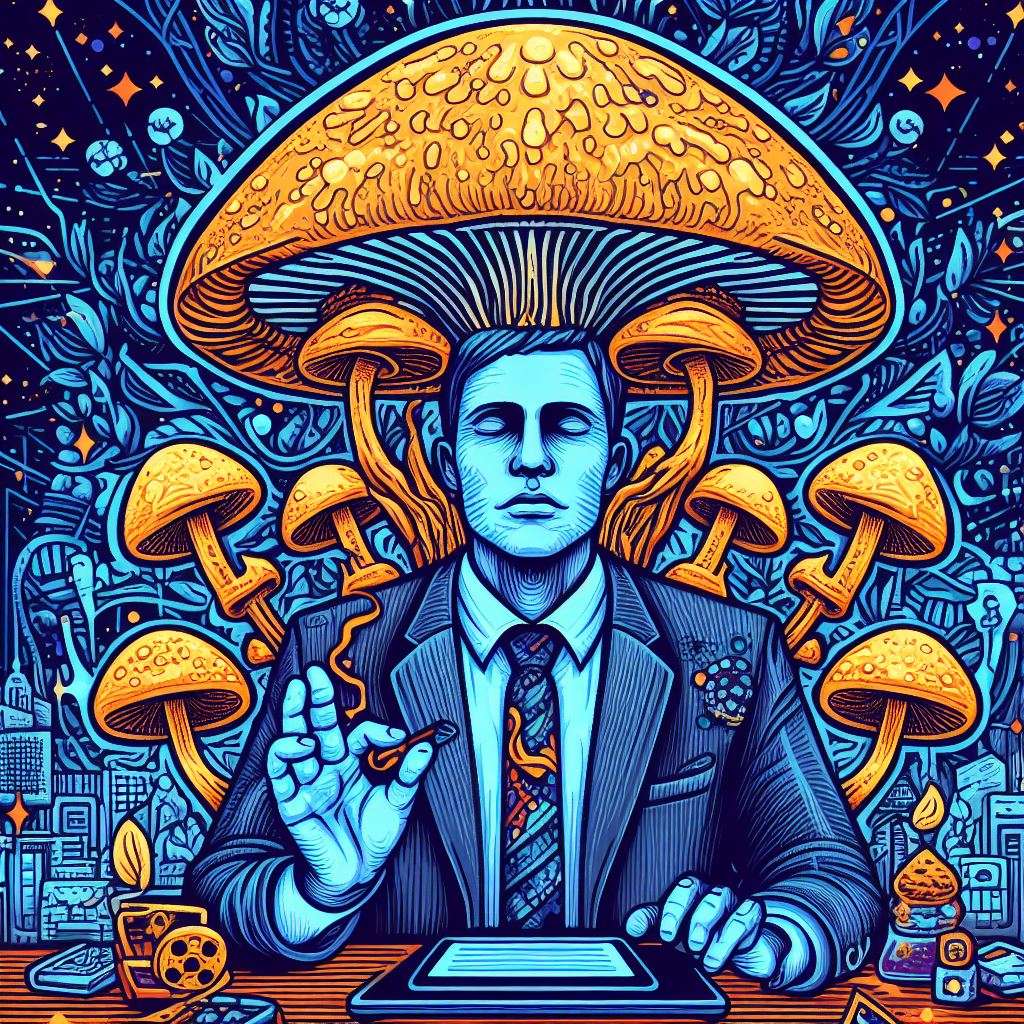Magic mushrooms have been used for centuries for their medicinal and spiritual properties. The active ingredient in these mushrooms is psilocybin, which is known for its mind-altering effects. In recent years, scientists have been studying psilocybin for its potential therapeutic benefits, including its ability to alleviate anxiety.
In this blog post, we will explore the science behind magic mushrooms and anxiety relief, including how psilocybin works in the brain. We will also discuss the therapeutic potential of psilocybin for anxiety and the safety considerations and risks associated with its use.
What is Psilocybin and How Does it Work?
Psilocybin is a naturally occurring psychedelic compound found in certain species of mushrooms, including magic mushrooms. When ingested, psilocybin is converted into psilocin, which is responsible for the mind-altering effects of the drug.
Psilocybin acts primarily on the serotonin receptors in the brain, specifically the 5-HT2A receptors. Serotonin is a neurotransmitter that plays a role in mood regulation, among other functions. By binding to these receptors, psilocybin alters the activity of certain brain regions, leading to changes in perception, thought, and mood.
The Neurological Effects of Psilocybin
The effects of psilocybin on the brain are complex and multifaceted. Studies have shown that psilocybin increases connectivity between brain regions that are normally not well-connected, leading to a state of “hyperconnectivity” in the brain. This increased connectivity is thought to underlie the profound changes in perception and thought that are often reported by users of psilocybin.
Psilocybin also affects the default mode network (DMN), a network of brain regions that are active when the brain is at rest and not focused on the external environment. The DMN is thought to play a role in self-reflection, rumination, and mind-wandering. Psilocybin reduces activity in the DMN, leading to a state of decreased self-referential processing and increased present-moment awareness.
The Mechanism of Action of Psilocybin in the Brain
Psilocybin’s effects on the brain are thought to be mediated by its interaction with the 5-HT2A receptors in the brain. By binding to these receptors, psilocybin activates a cascade of signaling pathways that ultimately lead to changes in brain activity.
One of the key downstream effects of psilocybin’s interaction with the 5-HT2A receptors is the activation of the mTOR pathway, which is involved in neuronal plasticity and the formation of new synapses. This suggests that psilocybin may have long-lasting effects on brain function and connectivity.
The Role of Serotonin in Psilocybin’s Effects
Serotonin is a key neurotransmitter that is involved in a wide range of functions in the brain, including mood regulation, appetite, and sleep. Psilocybin’s effects on serotonin are thought to play a central role in its anti-anxiety effects.
Studies have shown that psilocybin increases the release of serotonin in the brain, leading to increased activation of serotonin receptors. This activation is thought to be responsible for the drug’s ability to reduce anxiety and promote feelings of well-being.
How Do Magic Mushrooms Help with Anxiety?
The therapeutic potential of psilocybin for anxiety has been the subject of much research in recent years. Studies have shown that psilocybin can reduce anxiety in a range of clinical populations, including patients with terminal illness and treatment-resistant depression.
Psilocybin’s anti-anxiety effects are thought to be mediated by its ability to alter brain function and connectivity. By reducing activity in the DMN and increasing connectivity between brain regions, psilocybin may promote a sense of interconnectedness and unity with the self and the world, leading to a reduction in anxiety and an increase in positive mood.
Additionally, psilocybin has been shown to increase the personality trait of openness, which is associated with greater creativity, curiosity, and flexibility in thinking. This increase in openness may also contribute to the drug’s therapeutic effects, as individuals who are more open to new experiences and ideas may be better able to process and integrate the insights gained from a psilocybin experience.
Safety Considerations and Risks
While psilocybin has shown promising results in clinical trials, it is important to note that there are potential risks associated with its use. Psilocybin can cause a range of physical and psychological side effects, including nausea, vomiting, anxiety, paranoia, and hallucinations.
It is also important to note that psilocybin is a Schedule I drug in the United States, meaning that it is considered to have a high potential for abuse and no currently accepted medical use. However, in recent years, there has been a growing movement to decriminalize psilocybin and other psychedelics, and several cities in the US have already passed measures to decriminalize or reduce the enforcement of laws related to these substances.
If you are interested in exploring psilocybin for therapeutic purposes, it is important to do so under the guidance of a trained professional in a safe and controlled setting. There are currently several psilocybin retreats and clinics that offer guided psilocybin experiences, including the One Psilocybin Retreat in Jamaica, which has an upcoming retreat in July that is open for booking.
Conclusion
Psilocybin is a powerful psychedelic compound found in magic mushrooms that has been shown to have promising therapeutic potential for anxiety and other mental health conditions. Its effects on the brain are complex and multifaceted, and its mechanism of action involves its interaction with serotonin receptors in the brain.
While psilocybin is not without risks, it has shown promising results in clinical trials and is currently being studied as a potential treatment for a range of mental health conditions. If you are interested in exploring psilocybin for therapeutic purposes, it is important to do so under the guidance of a trained professional in a safe and controlled setting.






1 Comment
[…] the active ingredient in magic mushrooms, has shown promising results in treating various mental health conditions such as depression, anxiety, PTSD, and addiction. The […]